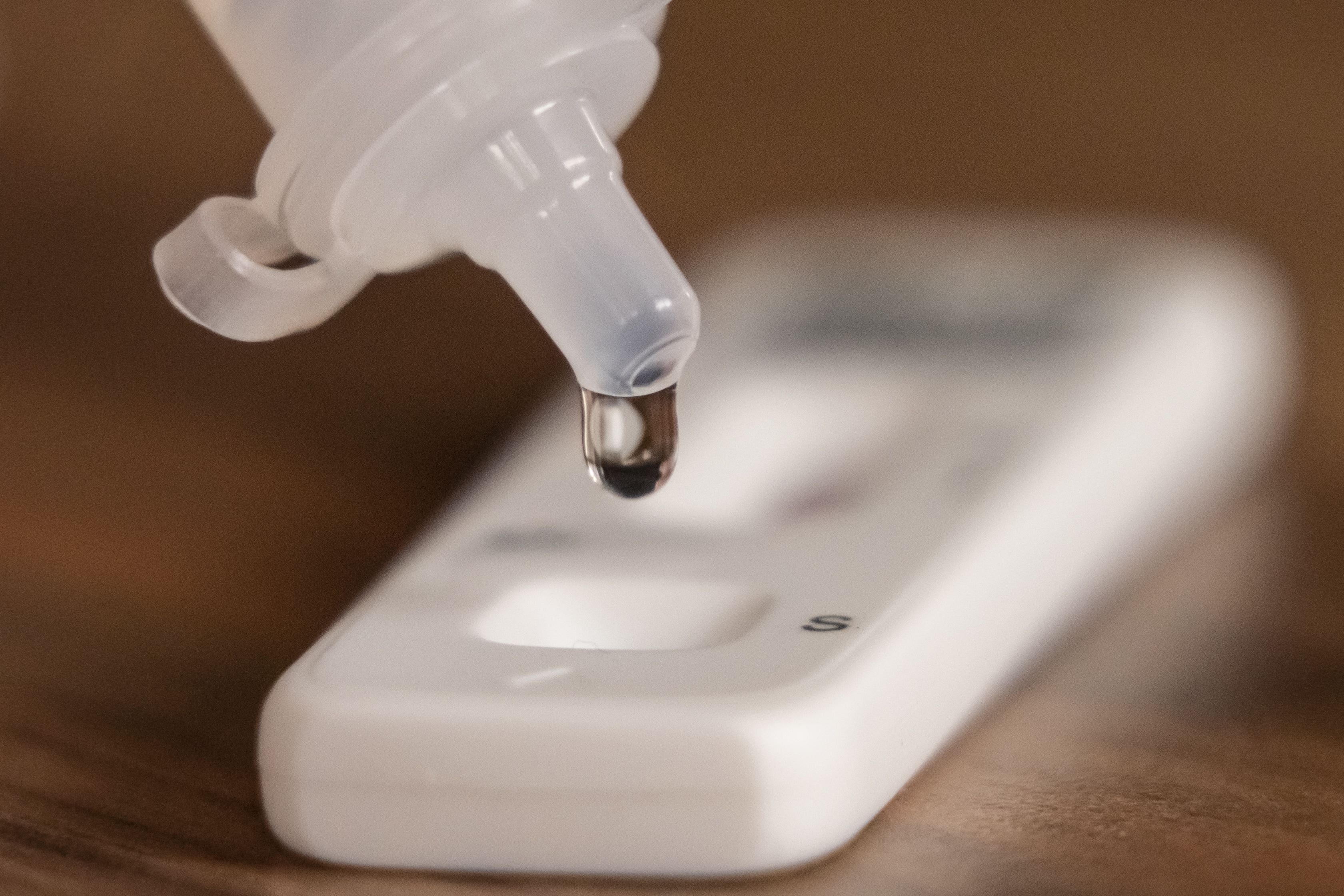You may have forgotten about Covid – but clinically vulnerable people don’t have that luxury
The UK has paused its infection survey, data that was important to those at highest risk


The way I see it, the government’s plan for “living with Covid” seems to be more “let’s try to forget about Covid in the hope that it will go away”.
As part of that process, the Covid-19 infection survey has been paused ahead of a review by the UK Health Security Agency (UKHSA). My unease over this has only grown since the last updated was published. I believe this will potentially have a serious knock-on effect for thousands of clinically vulnerable Britons.
The long-running weekly Covid-19 infection survey was quite rightly recognised worldwide as the “gold standard”. Conducted jointly by UKHSA, the Office for National Statistics (ONS) and the University of Oxford, it was set up in April 2020. More than 500,000 people took part.
The results helped to provide vital weekly data on virus levels across the UK – details on new variants, the characteristics of those who had the virus, their levels of antibodies and details of long Covid prevalence.
For the record, the final ONS missive showed that the overall rate of infection was running at one in every 40 people in mainland Britain, and one in every 70 in Northern Ireland. Rates of infection were found to be rising in the North West, the East Midlands and the South East of England. In Scotland, Northern Ireland and Wales, and in the other English regions, the trends were described as “uncertain”.
There were increases in infection in those aged 50 and over – the most vulnerable to complications – and in children aged two years through to school year 11. Most of them get off lightly. Most, but by no means all. The trends were “uncertain” for other age groups.
Such impressive data is obviously catnip to scientists and other experts. But my wife has also closely watched the figures. She’s on immunosuppressants and is thus classified as clinically vulnerable. I’m not exactly out of the woods myself as a type one diabetic. The numbers have helped inform our decision making.
So without this important data, what are we left with?
There is a government webpage full of fairly woolly advice. The messaging from the NHS seems to be quite disorganised: pages covering people at high risk were removed with the information “added to the relevant pages”, but it is not clear to me where it went. And that’s about it.
Clinically Vulnerable Families, a support group, is unimpressed. And who could blame them, given what this virus has the capacity to do?
“Communication with vulnerable people has been dire and the most recent (and possibly final) ONS data showed that people with underlying conditions currently have an 8.5x increased risk of mortality and 5.2x increased risk of long Covid,” the group said when I got in touch.
“Personal responsibility is not an effective way to manage public health and we no longer are testing or masking in hospitals (we do test for MRSA which kills far fewer people). 91 per cent of our members have told us that they have or would delay or cancel medical appointments due to high Covid risks. The 9 per cent are often people who have extremely high risks and no alternative. You can’t choose when you need emergency medical care.”
I concur. And it is precisely these vulnerable people most at risk now, in the new era of Covid silence.
Yes we have the vaccines – and they are highly effective. I feel that bears repeating. The Covid vaccines – and the UK vaccination programme – are mightily impressive scientific achievements.
But while the shots have dramatically cut deaths and serious illness, they have not eliminated them. People with various health conditions remain very much at risk.
And that last ONS update? It said Covid-19 accounted for 533 deaths that week. That’s 533 more people added to the already staggering death toll.
I increasingly feel like a bit of a weirdo going out in a mask, but delving into these figures is enough to keep me at it. And now these important figures – helpful guidance for informed responsible behaviour – are to stop.
Don’t get me wrong: I’m not after lockdown 2.0. Far from it. Life is much better now we can live it. But the virus has not gone away.
Covid is not something we should ever take our eyes off. Nor should we look away from the most vulnerable people who need our help. We need to do better by them.
So I’ll continue to watch out for them, as I will also be watching the UKHSA’s next pronouncement on the matter with great interest.

Join our commenting forum
Join thought-provoking conversations, follow other Independent readers and see their replies